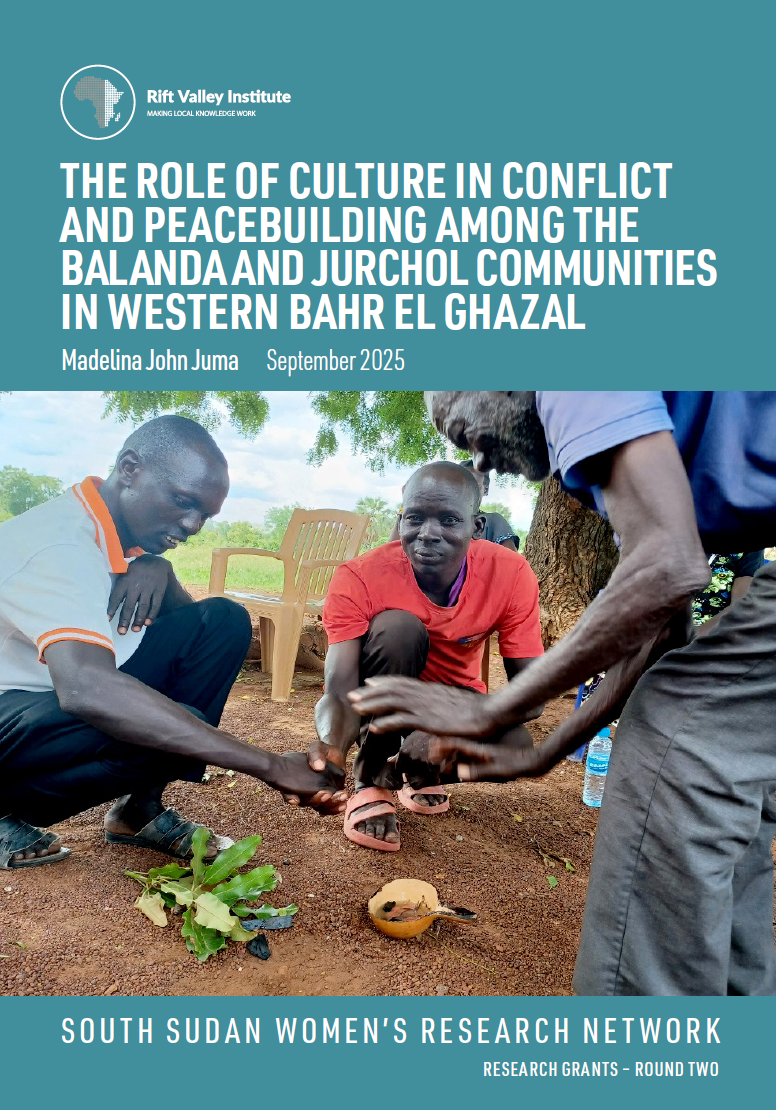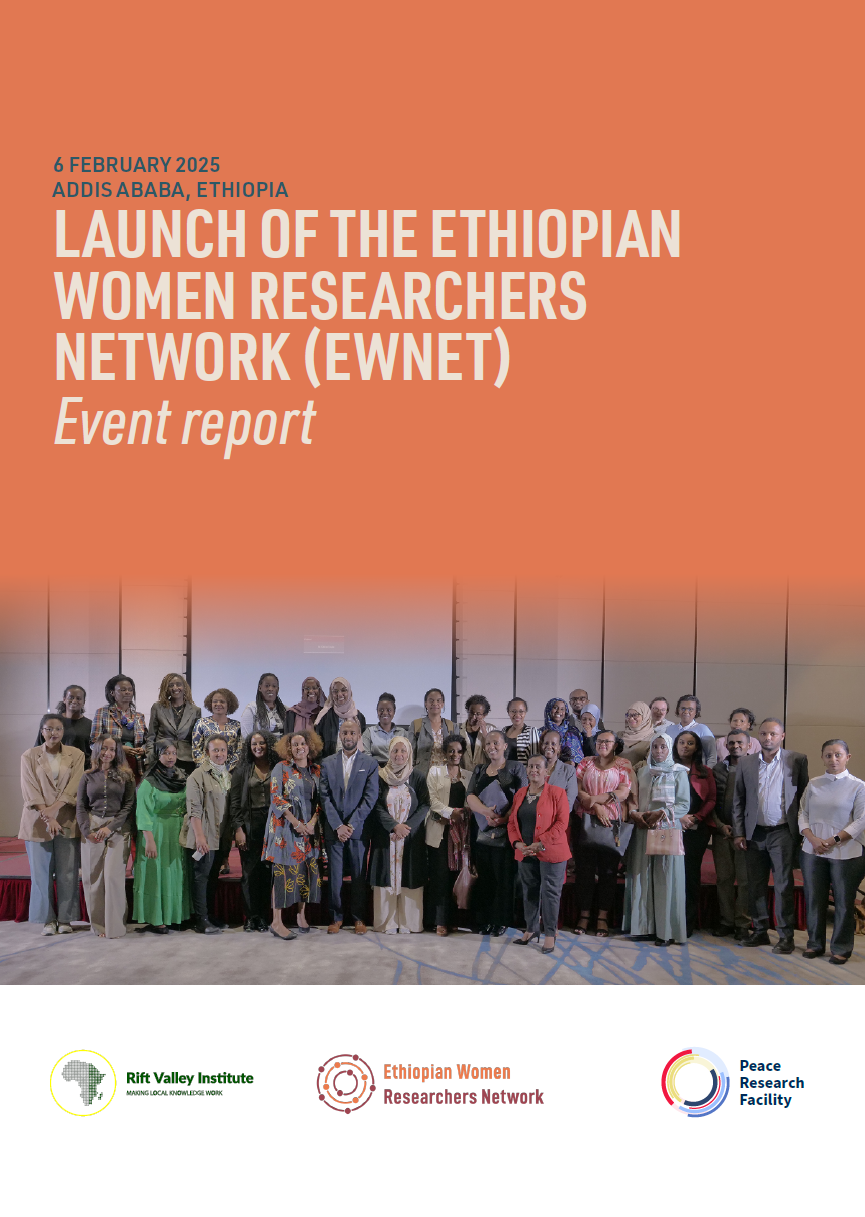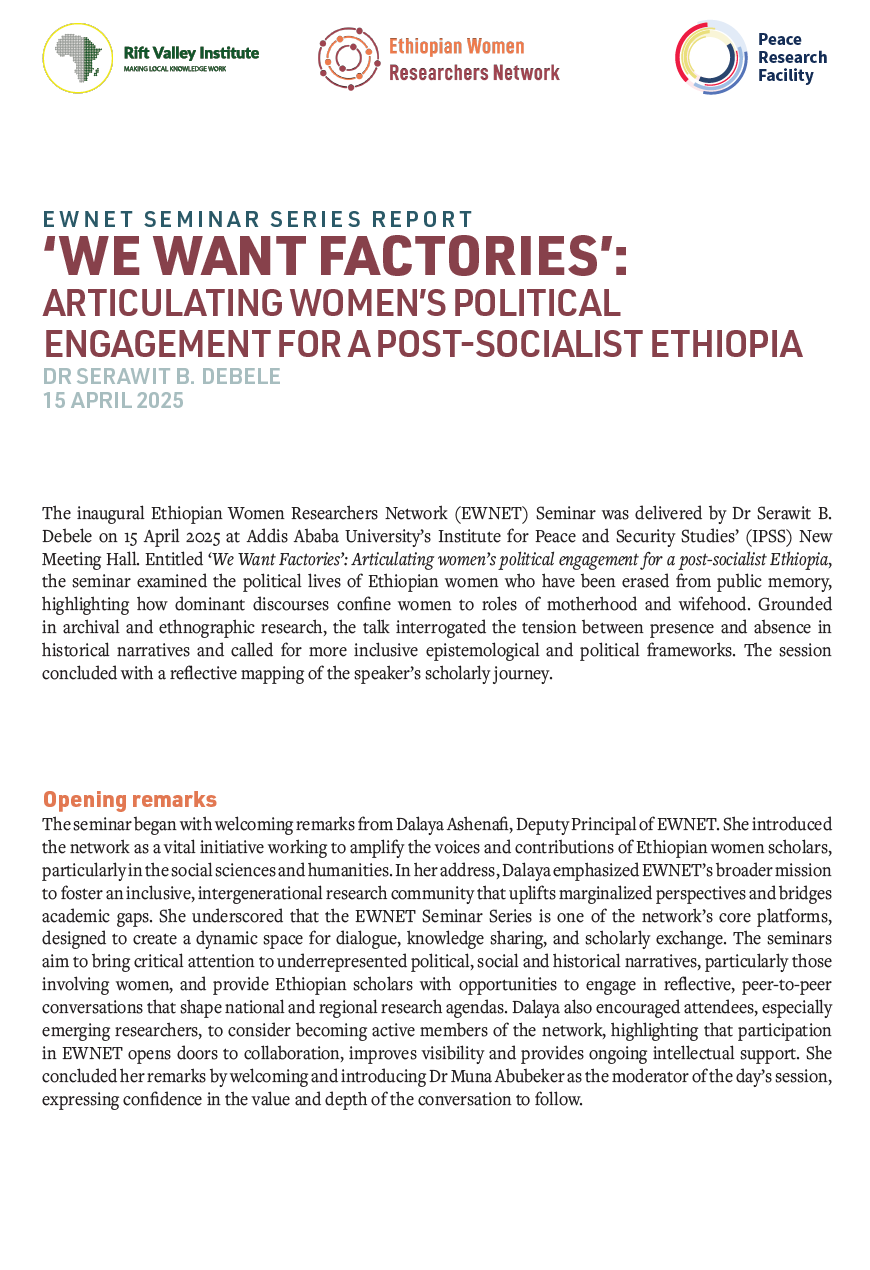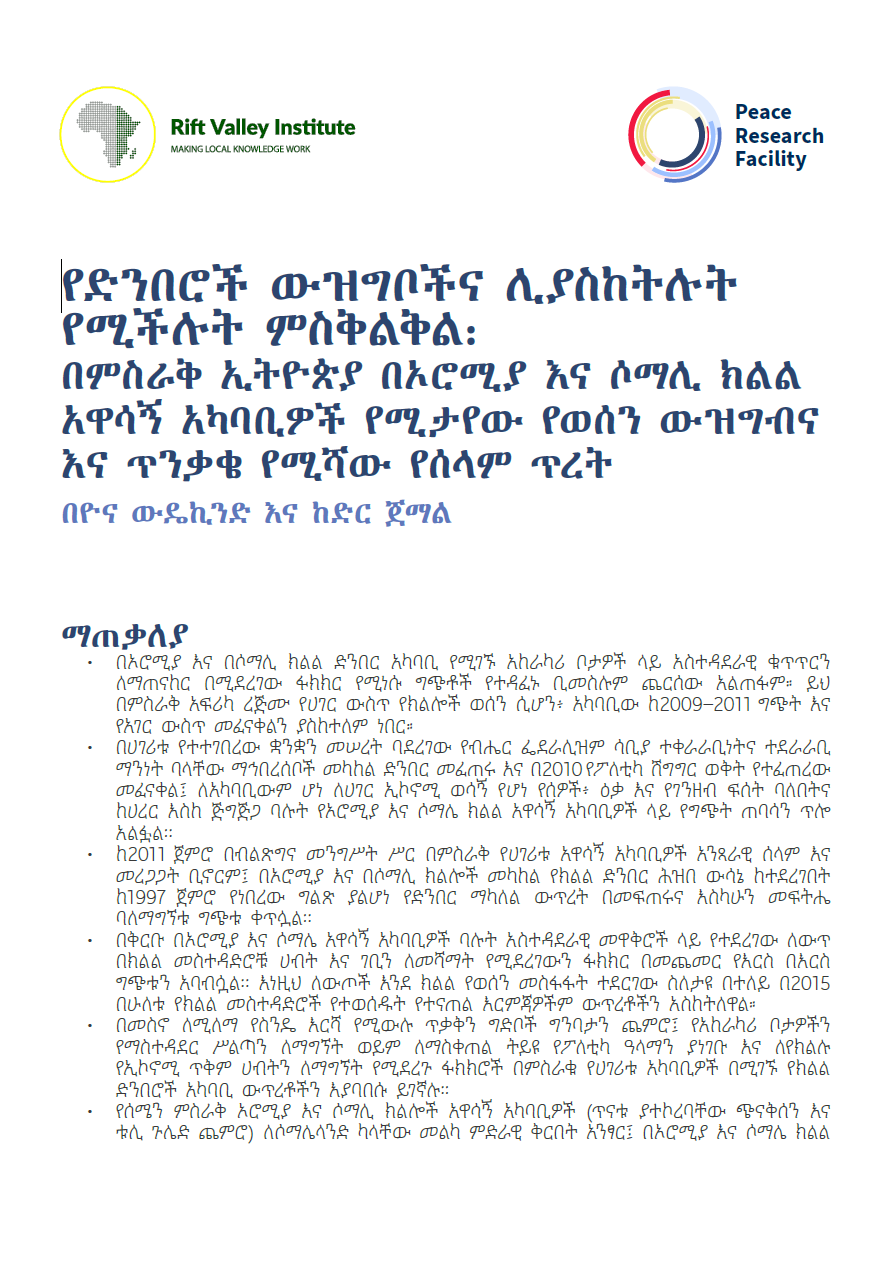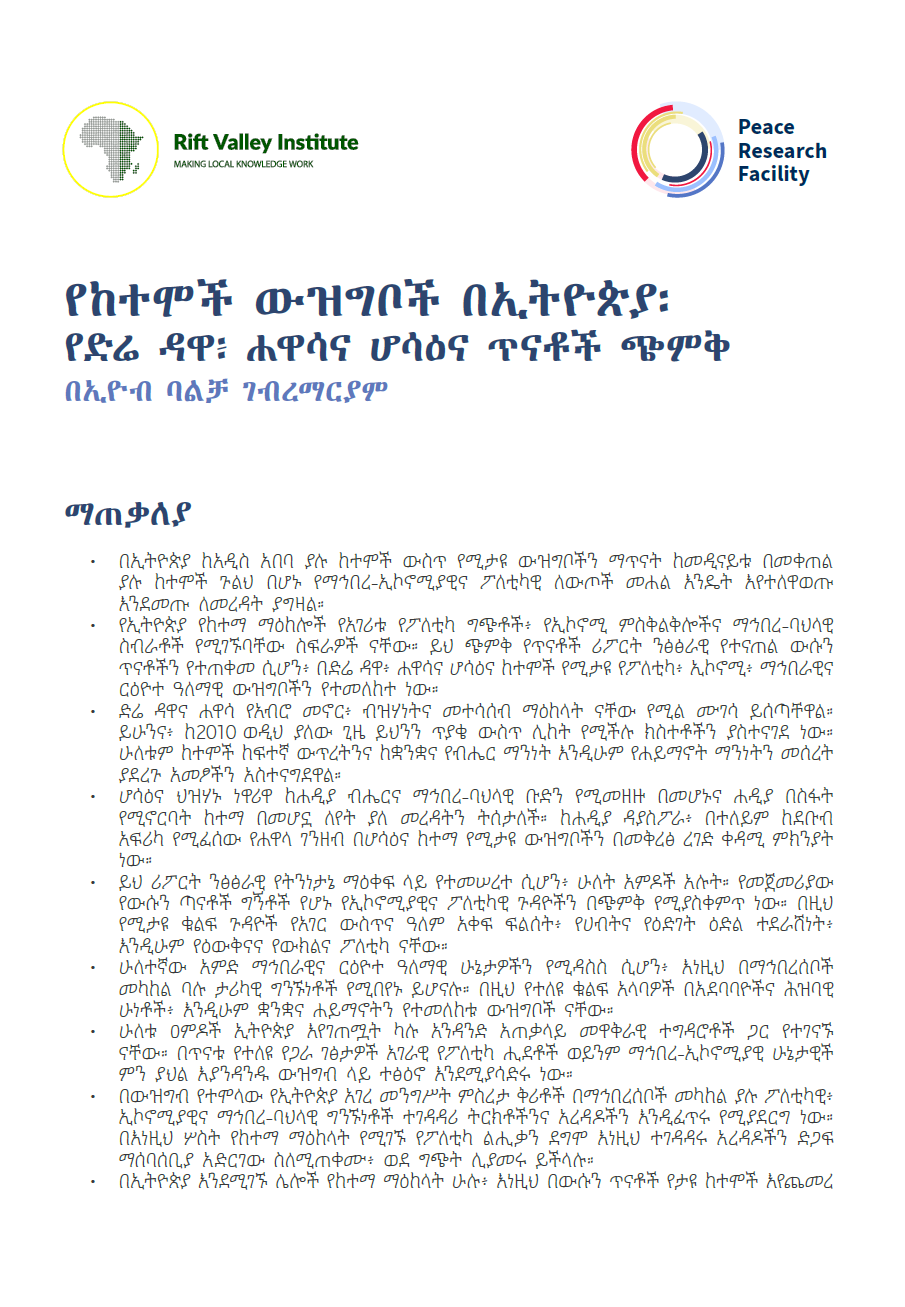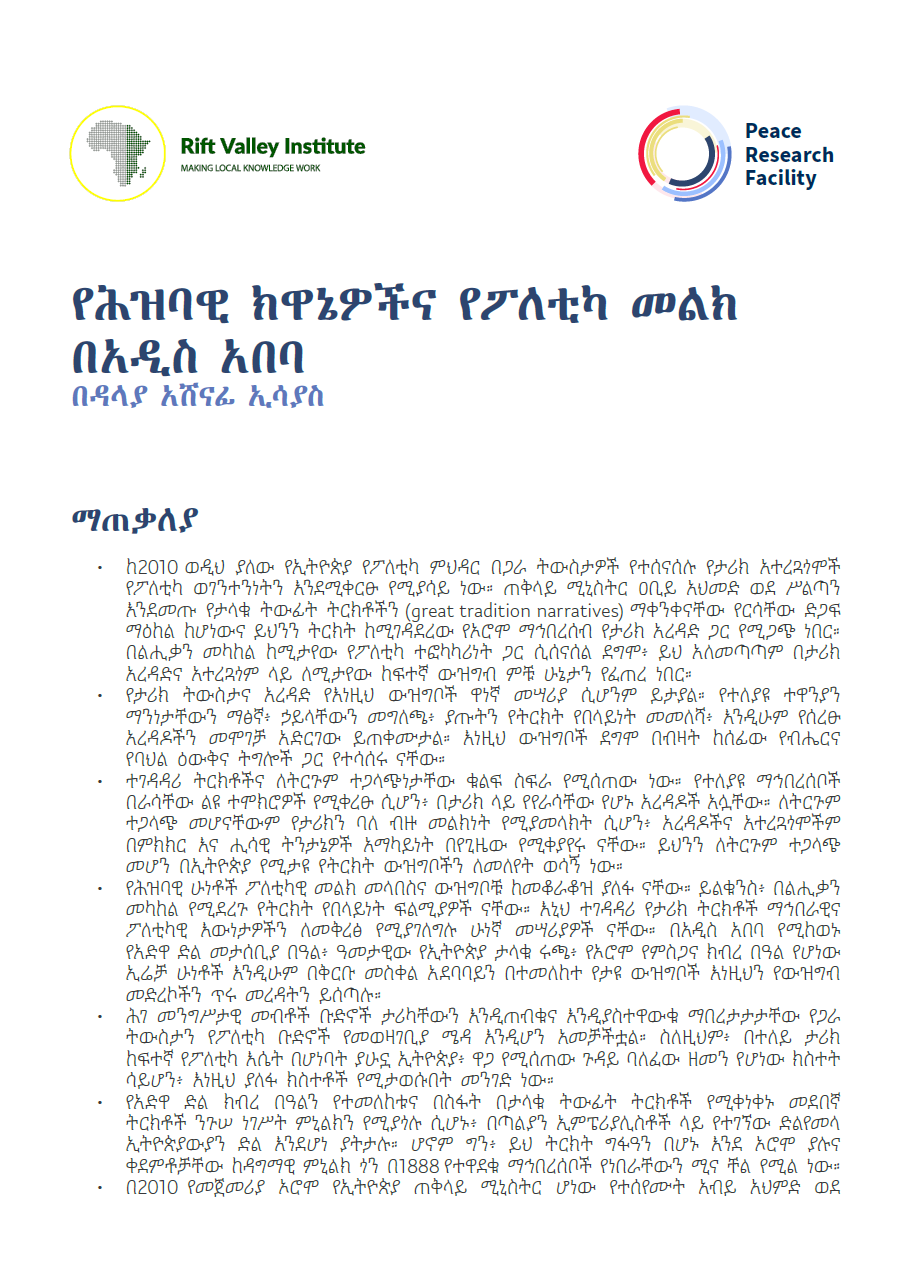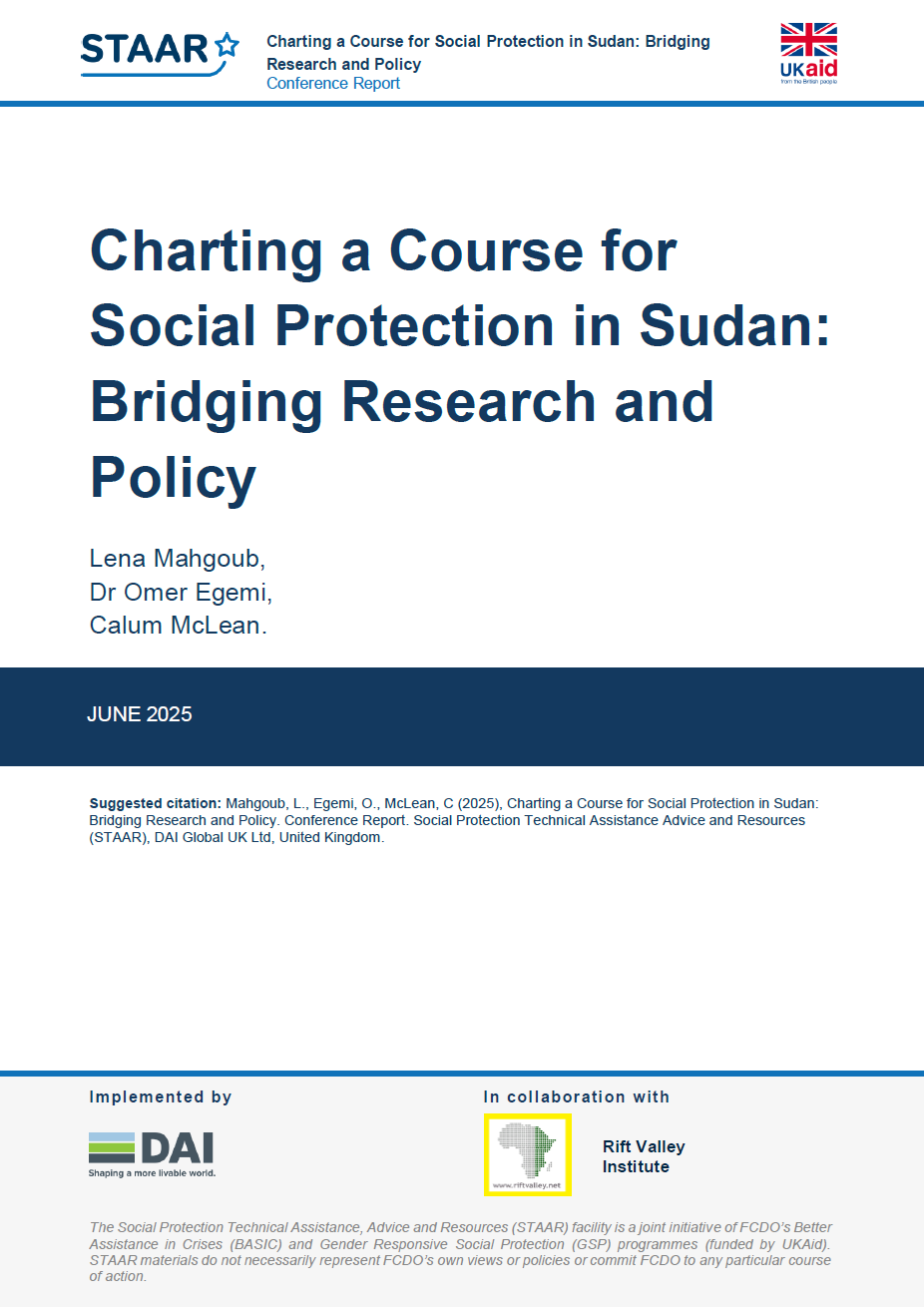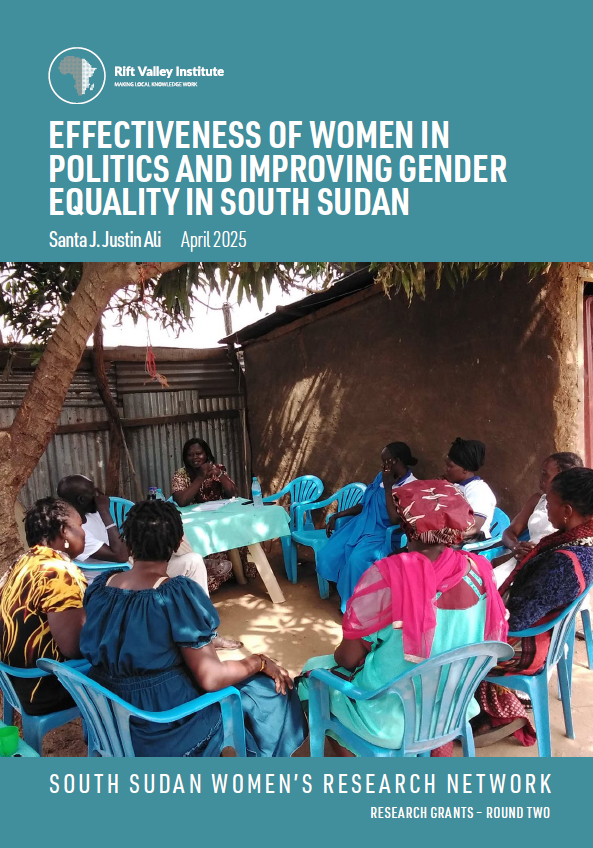The aim of this ethnographic study is to explore the role played by cultural expressions in conflict and peacebuilding in South Sudan, with specific reference to song, dance and beadwork. This study aims to understand how symbolic communication is…
RVI publishes books, research reports, research papers, briefings and meeting reports in a range of formats. Publications cover policy, research, arts, culture and local knowledge in the countries of eastern and central Africa. Research publications—books, reports and papers—are peer-reviewed. Some RVI publications are also available in French and/or Arabic.
The RVI is a signatory of the Budapest Open Access Initiative (2001); all publications are free for download in PDF format under Creative Commons licences. The views expressed in books and reports published by the RVI are those of the authors, not the Institute.
SEARCH
PUBLICATION TYPE
LANGUAGE
REGION
COUNTRY
This report details the launch event for the Ethiopian Women Researchers Network (EWNET). The event took place on 6 February 2025 from 9.00 a.m.–2.30 p.m. at the Skylight Hotel in Addis Ababa. It was organized by the Peace Research…
EWNET SEMINAR SERIES REPORT The inaugural Ethiopian Women Researchers Network (EWNET) Seminar was delivered by Dr Serawit B. Debele on 15 April 2025 at Addis Ababa University’s Institute for Peace and Security Studies’ (IPSS) New Meeting Hall. Entitled ‘We…
በኦሮሚያ እና በሶማሊ ክልል ድንበር አካባቢ የሚገኙ አከራካሪ ቦታዎች ላይ አስተዳደራዊ ቁጥጥርን ለማጠናከር በሚደረገው ፉክክር የሚነሱ ግጭቶች የተዳፈኑ ቢመስሉም ጨርሰው አልጠፉም። ይህ በምስራቅ አፍሪካ ረጅሙ የሀገር ውስጥ የክልሎች ወሰን ሲሆን፥ አካባቢው ከ2009–2011 ግጭት እና የአገር ውስጥ መፈናቀልን ያስከተለም ነበር።…
በኢትዮጵያ ከአዲስ አበባ ያሉ ከተሞች ውስጥ የሚታዩ ውዝግቦችን ማጥናት ከመዲናይቱ በመቀጠል ያሉ ከተሞች ጉልህ በሆኑ የማኅበረ-ኢኮኖሚያዊና ፖለቲካዊ ለውጦች መሐል እንዴት እየተለዋወጡ እንደመጡ ለመረዳት ያግዛል። የኢትዮጵያ የከተማ ማዕከሎች የአገሪቱ የፖለቲካ ግጭቶች፥ የኢኮኖሚ ምስቅልቅሎችና ማኅበረ-ባህላዊ ስብራቶች የሚገኙባቸው ስፍራዎች ናቸው። ይህ ጭምቅ…
ከ2010 ወዲህ ያለው የኢትዮጵያ የፖለቲካ ምህዳር በጋራ ትውስታዎች የተሰናሰሉ የታሪክ አተረጓጎሞች የፖለቲካ ወገንተንነትን እንደሚቀርፁ የሚያሳይ ነው። ጠቅላይ ሚኒስትር ዐቢይ አህመድ ወደ ሥልጣን እንደመጡ የታላቁ ትውፊት ትርክቶችን (great tradition narratives) ማቀንቀናቸው የርሳቸው ድጋፍ ማዕከል ከሆነውና ይህንን ትርክት ከሚገዳደረው የኦሮሞ ማኅበረሰብ…
With the purpose of charting a course for social protection in Sudan that will bridge the gap between research and policy, facilitate dialogue among key stakeholders and contribute to developing a shared vision for social protection in Sudan, this…
The report highlights the overlapping claims to and distributive struggles over territory and resources in the Oromia-Somali borderlands which animated inter-regional competition between the Oromia Regional State (ORS) and Somali Regional State (SRS), resulted in the brief 2023 uptick…
This research explores how Murle women in the Greater Pibor area of central eastern South Sudan use not just songs but dance, hairstyles, body marks and beads to express themselves. Its objective is to draw attention to the ways…
This report argues that, in order to improve women’s participation in politics and promote gender-responsive policies in the country, there is a need to enlarge government capacity for women’s leadership by introducing equal gender quotas for decision-making positions. Summary…
Recent Publications

Political Economy of Cash and Markets in Sudan
February 27, 2026
The research provides a snapshot of the war in Sudan in the period from February to April 2025. However, the war is dynamic, with political alliances and territorial control changing. The April 2023 conflict between the Sudan Armed Forces (SAF)

Rethinking Ethiopia II: Youth and politics
February 26, 2026
Seminar report Rethinking Ethiopia, a collaborative essay competition initiative between Addis Ababa University’s Institute for Peace and Security Studies (IPSS) and the Rift Valley Institute’s (RVI) Peace Research Facility (PRF), offers a platform for Ethiopian youth to express their ideas

2025 Year in Review
February 16, 2026
The 2025 Year in Review provides an overview of the Rift Valley Institute’s work over the past year across eastern and central Africa. The report highlights RVI’s research and publication outputs, education and training activities, and public forums and convenings,

